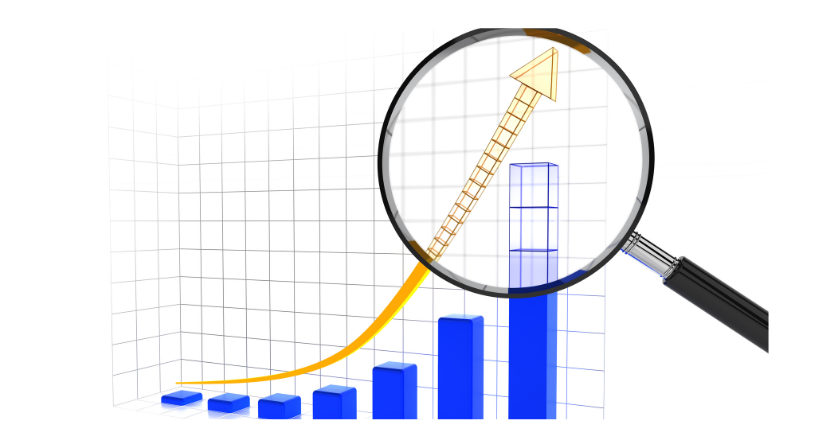Artificial Intelligence has moved from being a distant idea to becoming the foundation of modern life. Businesses, governments, and people now use AI every day. From voice assistants and smart recommendations to fraud detection and healthcare solutions, AI is shaping how the world works.
The conversation is no longer about whether AI will change industries. The real question is how fast it will reshape them and what new risks or opportunities it will bring. In this blog, we will explore the biggest AI trends 2025, look at what the future may hold, and show how organisations can prepare.
Key AI Trends 2025
1. Generative AI in the Workplace
Generative AI is moving beyond writing tools. In 2025, businesses are embedding it into workflows, from customer service to coding. Instead of using multiple apps, employees will interact with one AI system that connects across tools. This will save time and cut costs while making work smoother.
2. AI for Cybersecurity
Cyber threats are growing, and hackers are using AI too. In 2025, AI-driven cybersecurity systems will play a key role in defending companies. These systems can spot suspicious behaviour faster than humans and respond in real time. As attacks become more complex, AI security solutions will be a top investment.
3. Rise of AI Regulation
Governments are catching up with the rapid growth of AI. The EU AI Act and other global policies are pushing companies to be more transparent. In 2025, compliance will become just as important as innovation. Businesses that fail to follow new rules may face heavy fines or lose customer trust.
4. AI in Healthcare
Healthcare is one of the most exciting areas for AI. In 2025, AI will help predict diseases earlier, support doctors with diagnoses, and speed up drug development. AI-powered robots will also assist in surgeries, making procedures safer and more precise.
Quick link: Best AI Cost Management Tools for 2025
5. AI for Sustainability
Climate change is a pressing issue, and AI is helping fight it. Companies will use AI to optimise energy use, improve supply chains, and reduce waste. In 2025, we will see more organisations relying on AI to meet sustainability targets and comply with green regulations.
6. Personalised Learning with AI
Education is being reshaped by AI tutors that adjust lessons based on each student’s pace. By 2025, schools and online platforms will widely use AI to personalise learning. This will close knowledge gaps and make education more accessible worldwide.
7. AI-Powered Creativity
AI is not just about logic and numbers. It is creating music, art, and design at a scale never seen before. In 2025, AI-powered creativity will expand in marketing, media, and entertainment. Human creativity will combine with AI to produce more powerful results.
8. Edge AI and IoT Growth
With billions of devices connected to the internet, processing data only in the cloud is not enough. Edge AI, where devices process data locally, is becoming popular. By 2025, this will make smart homes, cars, and factories faster and safer, since devices can make decisions without waiting for the cloud.
9. AI for Decision-Making
AI is no longer just supporting decisions; it is shaping them. In 2025, managers will rely on AI dashboards to predict trends, assess risks, and make smarter choices. Companies that adopt AI-driven decisions will have a strong edge in speed and accuracy.
10. Responsible and Ethical AI
As AI grows, concerns about bias, job loss, and privacy will increase. In 2025, businesses will be pushed to prove their AI is fair and trustworthy. Building ethical AI systems will become a key trend, especially for companies that want long-term trust.
Future Predictions for AI in 2025 and Beyond
AI is not slowing down. Looking at the trends, we can predict:
- AI will become a daily co-worker: Instead of being a separate tool, AI will integrate into emails, documents, and business platforms, making work seamless.
- AI laws will expand globally: More countries will follow the EU AI Act model, forcing businesses everywhere to rethink compliance.
- AI will reshape jobs: While some roles may disappear, new jobs like AI trainers, auditors, and ethicists will rise.
- AI will drive industry competition: Companies that adopt AI quickly will lead their markets, while slower ones may struggle.
- AI will be key in national strategies: Governments will invest more in AI for defence, healthcare, and education to stay ahead.
Quick link: AI FinOps Software
WrangleAI: The Smarter Way to Manage AI Usage
With AI becoming central to how businesses work, managing and monitoring it is critical. Many companies adopt AI without knowing how their teams use it, what risks it carries, or whether it follows compliance rules. This is where WrangleAI makes a difference.
WrangleAI is built to help companies track, monitor, and control their AI usage. It gives leaders clear visibility into how AI tools are being used, ensures compliance with regulations, and helps reduce risks like data leaks or misuse.
By providing one central platform to wrangle AI across the organisation, WrangleAI empowers businesses to move fast without losing control. As AI grows in 2025, solutions like WrangleAI will not be optional but essential.
Conclusion
AI in 2025 is set to transform industries, redefine jobs, and shape global policies. From generative AI in the workplace to ethical AI, the trends point toward a world where technology and human creativity work side by side. Businesses that adapt to these changes early will not only survive but thrive.
For organisations looking to stay ahead, adopting the right tools is vital. WrangleAI provides the clarity and control needed to manage AI usage safely and effectively. As the future unfolds, WrangleAI ensures businesses can embrace AI confidently, without losing oversight.
FAQs
What are the biggest AI trends in 2025?
The biggest AI trends in 2025 include responsible AI, AI for workplace productivity, healthcare innovation, AI in finance, and personalised customer experiences.
How will AI affect jobs in 2025?
AI will not replace all jobs but it will change many roles. Workers who use AI tools for tasks like automation, decision-making, and analytics will have an advantage.
Why is responsible AI important in 2025?
Responsible AI is important because it makes sure AI tools are safe, fair, and clear. It reduces risks like bias, data misuse, and lack of trust.
What industries will benefit the most from AI in 2025?
Healthcare, finance, education, retail, and manufacturing will benefit most. They will use AI for faster services, lower costs, and better customer experiences.
How can businesses prepare for AI in 2025?
Businesses can prepare by training staff, using AI responsibly, and investing in AI tools like WrangleAI that help manage and monitor usage.


